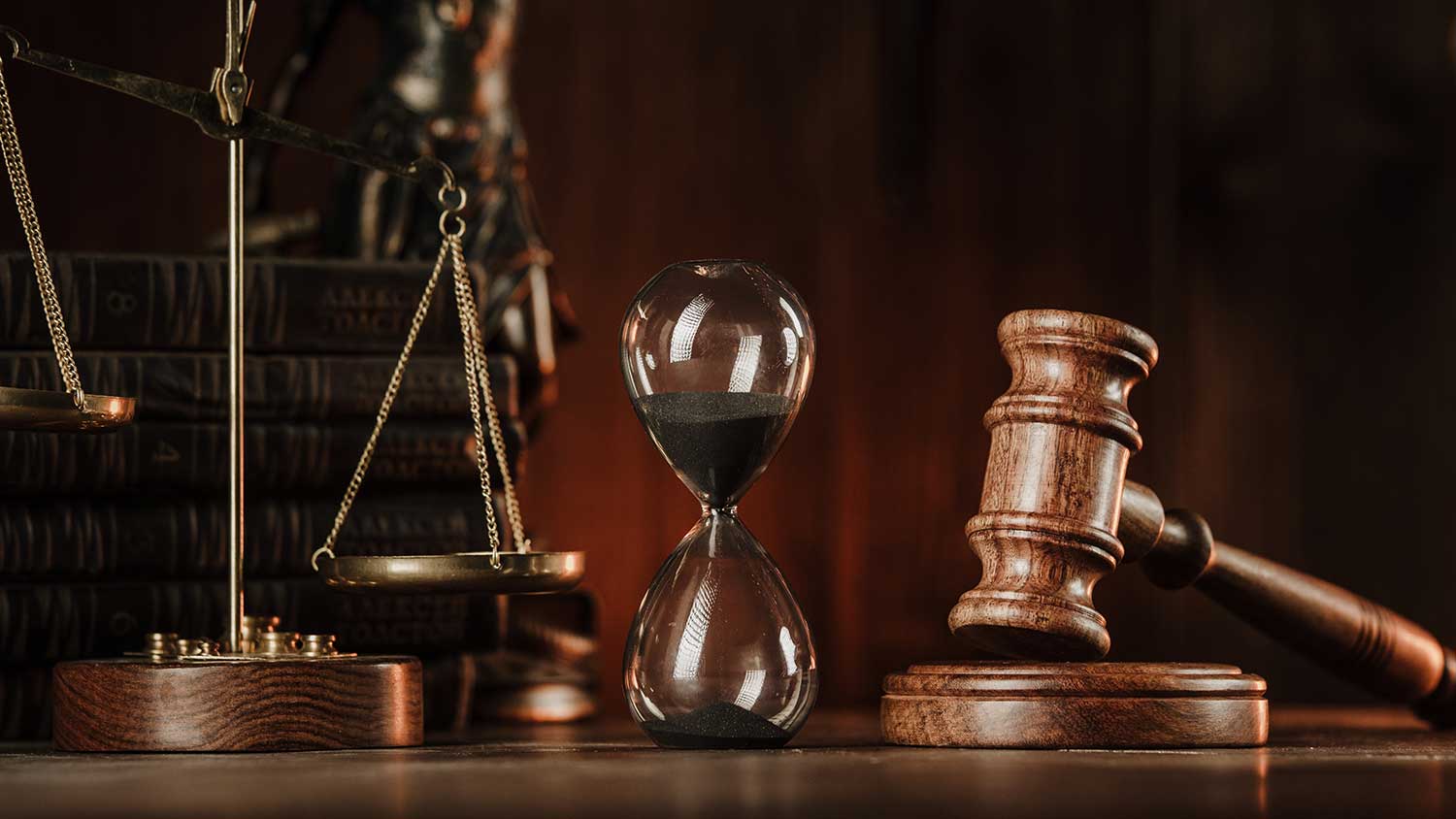EDITED BY:
Professor Michael H. Hoeflich, PhD, Editor-in-Chief
Carrie E. Parker, Legal Editor
Matthew T. Stephens, Design & Publishing Editor
PUBLISHED BY: Joseph, Hollander & Craft LLC
PUBLICATION DATE: December 31, 2024
READ & DOWNLOAD FULL-TEXT PDF OF LEMR Vol. 5, No. 12
FEATURE ARTICLE: The Importunate Client
Several months ago, LEMR featured an article on the ethical and practical problems of the “tyrannical client,” which garnered some interest. This month, we follow up with a piece on the “importunate client.” An importunate client is one who feels compelled to be in constant contact with his or her lawyer, seeking information about his or her representation. Besides being annoying, such importunateness can be quite disruptive to the lawyer’s life. How should a lawyer deal with such clients?
Lawyers are their clients’ agents and fiduciaries. The essence of the lawyer-client relationship is the trust the client must have in his lawyer. The importance of trust underlies and justifies many of the ethical rules that regulate the relationship. For instance, the rules concerning the confidentiality of client information under Rule 1.6 justify strict lawyer confidentiality on the ground that a client must have total confidence that his lawyer will not damage him through information disclosure.
There are a number of aspects to consider when dealing with an importunate client. First, of course, every lawyer has an ethical duty to communicate with her client pursuant to Rule 1.4. Kansas Rule of Professional Conduct 1.4 reads:
. . .
NEW AUTHORITY: Conflicts & Family Government
United States Presidents have the right to appoint thousands of individuals to positions in the executive branch and its agencies and departments, and the vast majority of these appointments do not require congressional advice or consent. Presidents have often appointed friends and family members to such positions. While such appointments may draw criticism from some commentators, the practice has been going on for decades.
In the case of lawyers and judges, however, the appointment of related parties may raise the possibility of conflicts of interest that violate legal and judicial codes of ethics. Bloomberg Law recently drew attention to this issue in an article discussing the appointment of Chad Mizelle as the Justice Department’s chief of staff.1
Mizelle is not related to President-elect Trump, so the ordinary critique is not at issue. Instead, the concern arises from the fact that he is married to Judge Kathryn Mizelle of the United States District Court for the Middle District of Florida.
Because Judge Mizelle is governed by the Code of Conduct for United States Judges, she would be required to recuse herself from cases challenging any policy her husband created or in which his interests could be substantially affected by the outcome of the proceeding—among other scenarios. She would also have to avoid discussing ongoing Justice Department matters with her husband if they were pending in her courtroom.
According to Bloomberg, however, analysts believe that the likelihood of actual conflicts is low:
Still, judicial ethics experts predicted the appointment isn’t likely to spark many conflicts of interest, given that challenges to Justice Department policies aren’t generally litigated in Florida.
The chances that Chad Mizelle’s work would require his wife to recuse from cases involving the department “are slim,” said Stephen Gillers, a professor at the New York University School of Law, who studies judicial ethics.
The chief of staff is unlikely to be involved in civil or criminal matters in Tampa, where the judge is based. And while Chad Mizelle will be involved in creating policies, it is “highly improbable” challenges to those policies would land in Judge Mizelle’s courtroom, Gillers said. However, if they did, the judge would need to recuse, he said.
Green also said that the “mere fact” that Mizelle would have a supervisory role at the department doesn’t mean he’s in charge of cases in the federal courts, he said.
While there is no reason to believe that the Mizelles and other professional couples in public service will not adhere strictly to the ethical responsibilities placed upon them, one can also be certain that they will face increased scrutiny in any case in which the possibility of a conflict appears possible.
1Suzanne Monyak & Ben Penn, Mizelles Must Navigate Ethics of Dual Trump Appointed Roles, Dec. 24, 2024, https://news.bloomberglaw.com/us-law-week/mizelles-must-navigate-ethics-of-dual-trump-appointed-roles.
ETHICS & MALPRACTICE RESEARCH TIP: New Articles from the Current Index to Legal Periodicals
The Hofstra Law Review has done the profession and the public a great service by publishing a symposium on United States Supreme Court ethics in Volume 52, Issue 3 (Spring 2024). The list of articles is below.
Theo Liebmann, Introduction: Accountability and the Future of the Supreme Court, 52 Hofstra L. Rev. 551 (2024).
Jennifer Ahearn & Michael Milov-Cordoba, The Role of Congress in Enforcing Supreme Court Ethics, 52 Hofstra L. Rev. 557 (2024).
James J. Sample, The Supreme Court and the Limits of Human Impartiality, 52 Hofstra L. Rev. 579 (2024).
Eric J. Segall, Recency Bias and the Supreme Court: The Problem Is the Institution, Not the People Who Sit on It, 52 Hofstra L. Rev. 617 (2024).
Brie Sparkman Binder & Debra Perlin, Americans and the Court: How Public Outcry Has Influenced the Court to Address Judicial Ethics Crises, 52 Hofstra L. Rev. 631 (2024).
Louis J. Virelli III, The Underappreciated Virtues of the Supreme Court’s Ethics Code, 52 Hofstra L. Rev. 657 (2024).
A BLAST FROM THE PAST: Lawyer Integrity
Never misrepresent, falsify, or deceive;
have one rule of moral life; never swerve from it,
whatever may be the acts or opinions of other men.
—J.L. Nichols, The Business Guide: Or, Safe Methods of Business 41 (1894).
READ & DOWNLOAD FULL-TEXT PDF OF LEMR Vol. 5, No. 12
About Joseph, Hollander & Craft LLC
Joseph, Hollander & Craft is a mid-size law firm representing criminal defense, civil defense, personal injury, and family law clients throughout Kansas and Missouri. From our offices in Kansas City, Lawrence, Overland Park, Topeka and Wichita, our team of 25 attorneys covers a lot of ground, both geographically and professionally.
We defend against life-changing criminal prosecutions. We protect children and property in divorce cases. We pursue relief for clients who have suffered catastrophic injuries or the death of a loved one due to the negligence of others. We fight allegations of professional misconduct against medical and legal practitioners, accountants, real estate agents, and others.
When your business, freedom, property, or career is at stake, you want the attorney standing beside you to be skilled, prepared, and relentless — Ready for Anything, come what may. At JHC, we pride ourselves on offering outstanding legal counsel and representation with the personal attention and professionalism our clients deserve. Learn more about our attorneys and their areas of practice, and locate a JHC office near you.










